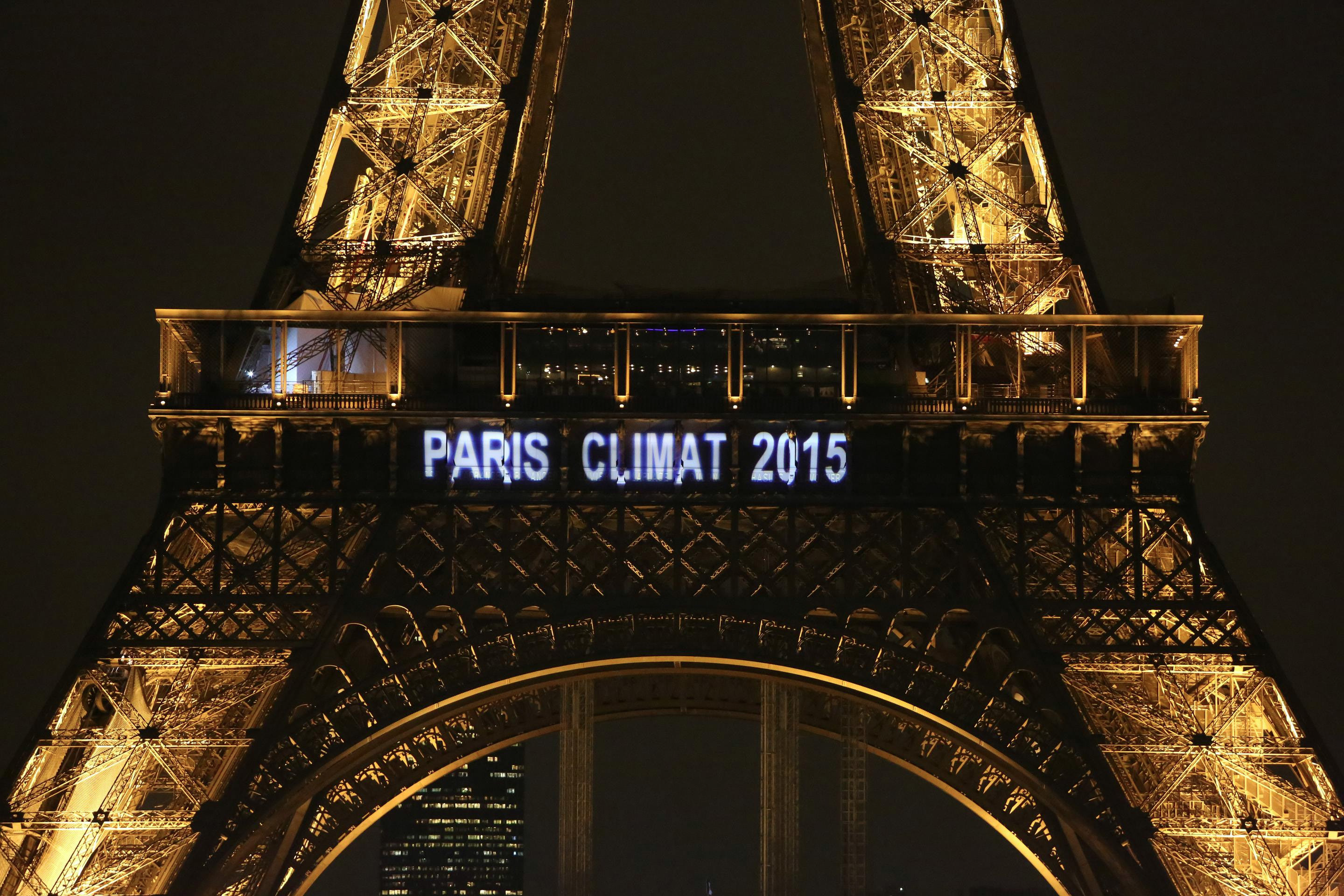Leaders take first step in creating a thriving, clean economy
Edward Cameron
Government Leaders have taken the first step in creating a thriving, clean economy. Now they must continue the journey by including a long-term decarbonization goal in the Paris Agreement.
In Paris, today, more 147 heads of government are committing to ambitious greenhouse gas emissions reductions with the goal of creating a thriving clean economy. The speeches represent the opening statements of an historic UN climate conference with the goal of ensuring that all people irrespective of nationality can lead prosperous and dignified lives within the boundaries of the Earth’s natural resources.
The delegates at COP21, as the meeting is known in UN jargon, will work over the coming two weeks to finalize an international climate agreement with the purpose of avoiding dangerous climate change. The talks have begun with some unprecedented momentum. Over the course of the summer, 184 countries, covering 95% of global emissions, have developed climate action plans or so-called Intended Nationally Determined Contributions (INDCS). This includes:
- The United States proposes to reduce its greenhouse gas emissions by up to 28% below 2005 levels by 2025 with plans focused on energy efficiency, tackling methane emissions, reductions in the power sector, and increasing the share of renewables to 20% by 2030. Speaking today President Obama said… “we have broken the old arguments for inaction”. Climate action is now consistent with economic prosperity. He further stressed that COP21 needed to unleash the best of our entrepreneurs by sending a clear policy signal to business and investors through the decisions taking in Paris.
- India has proposed a target of 40 percent non-fossil-based power capacity by 2030. In addition, India is committing to reducing emissions intensity by 33-35 percent from 2005 by 2030. Speaking today President Modi announced plans to spearhead a solar revolution with African countries to secure financing and technology. He plans to lead a group of over a hundred countries to offer cooperation for better technology diffusion, faster costs reductions, and sound policy lessons related to deployment of solar energy.
- China has announced plans to peak the country’s carbon-dioxide emissions around 2030; to increase its non-fossil-fuel share of energy use to around 20 percent by 2030; and to launch a national emissions-trading system by the end of 2016. This represents the clearest signal to date that a major structural shift away from carbon-intensive development is underway in the world’s second-largest economy. Speaking today President Xi said China has the confidence and resolve to fulfill their climate commitments. He also noted that “Paris is not a finish line but a new starting point” in global efforts to tackle climate change.
With these announcements, government leaders have taken the first step in creating a thriving, clean economy. Now they must continue the journey by committing to a clear pathway to holding global warming below 2°C. We Mean Business has ideas to offer on this.
They could begin by ensuring that a commitment to holding temperatures below 2C is included in Article 2 of the new agreement. We Mean Business proposes the following text to express the purpose of the new agreement: “The purpose of this Agreement is to hold the increase in global average temperature below 2°C and preferably below 1.5°C above pre-industrial levels by ensuring deep cuts in global greenhouse gas emissions, and to achieve the global transformation to low carbon and climate resilient economies and societies.”
They could compliment this language by ensuring alignment within Article 3 of the new agreement dealing with mitigation. We Mean Business proposes: “To achieve the long-term temperature goal set out in Article 2 of this Agreement, Parties collectively aim to reach net zero global greenhouse gas emissions well before the end of this century.”
And finally, they could craft a COP Decision with a view to developing national decarbonization strategies out to 2050. We Mean Business proposes a COP Decision with the following language: “Strongly encourages Parties to formulate and communicate, by 2018, national decarbonization strategies to 2050, to facilitate the mobilization of climate finance and investment.”
By enshrining this long-term goal into the new agreement governments will provide the policy certainty and clarity needed to drive low carbon and climate resilient investment in the real economy. By providing a commitment to long-term decarbonization governments will increase business confidence in making multi-decadal low carbon capital investments.

